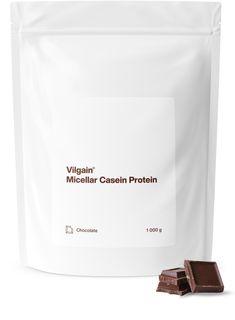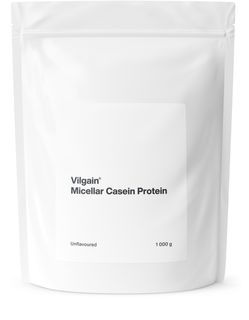
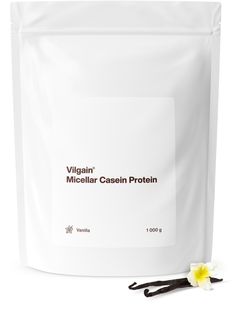
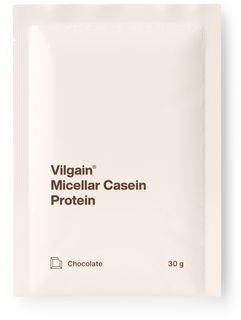
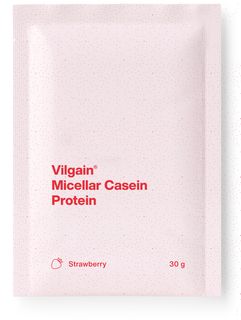
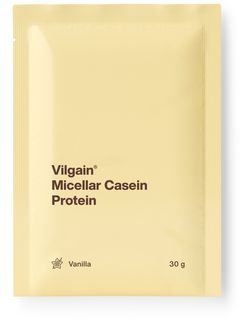
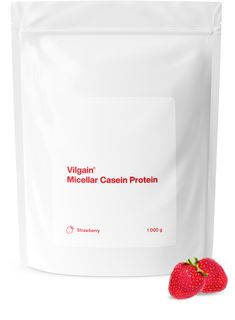
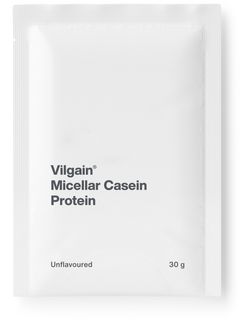
Overnight casein protein
Casein is the main protein (about 80 %) found in cow's milk. The rest of the protein is whey (about 20 %), which is used to make whey protein. Casein occurs in milk in the form of spherical structures called micelles.
Due to this complex structure, casein proteins take longer to digest than, for example, whey proteins and thus ensure a slower rise in the concentration of amino acids in the bloodstream. It is thus not a suitable protein supplement after training, but it is still a good source of quality protein during the day and especially in the evening, hence the name night protein.
Types of casein proteins
Depending on the technology used in the production process, it is possible to come across several types of casein proteins, whose properties differ to some extent:
- Caseinate (calcium, sodium or potassium) is formed by denaturation, during which it loses its original structure. Caseinates are therefore considered to be inferior casein proteins, as they do not contain the original bioactive protein fractions and are characterised by lower absorption and availability.
- Micellar casein is considered to be the highest quality and best overnight protein on the market, produced by the CFM method. Micellar casein "solubilizes" in the acidic environment of the stomach and enters the digestive tract in small pieces, making it more absorbable and usable.
- Casein hydrolysate is a less available, enzymatically cleaved, variant of casein protein, allowing maximum utilisation. A minor negative is the slightly reduced digestion time and higher price. If you are aiming for fast absorption, whey protein is a better option.
Why take overnight proteins
Casein proteins have earned their rightful place among protein supplements with their unique properties. The main benefits include:
- 70‑80 % protein content,
- long digestion time (for 30 g it is about 4 hours),
- support of regeneration processes,
- support for muscle growth,
- reduction of muscle catabolism.
Although casein proteins are called night proteins, they can also be used during the day, especially if you have not taken protein‑containing food for a long time and you want to prevent muscle catabolism.
Unlike whey proteins, casein ones contain smaller amounts of the amino acid leucine, which has the most supportive anabolic effect. The absence of this amino acid can be compensated for by taking BCAA supplements or mixing it with whey protein. This problem is partly solved by suitable multi‑ingredient proteins.
